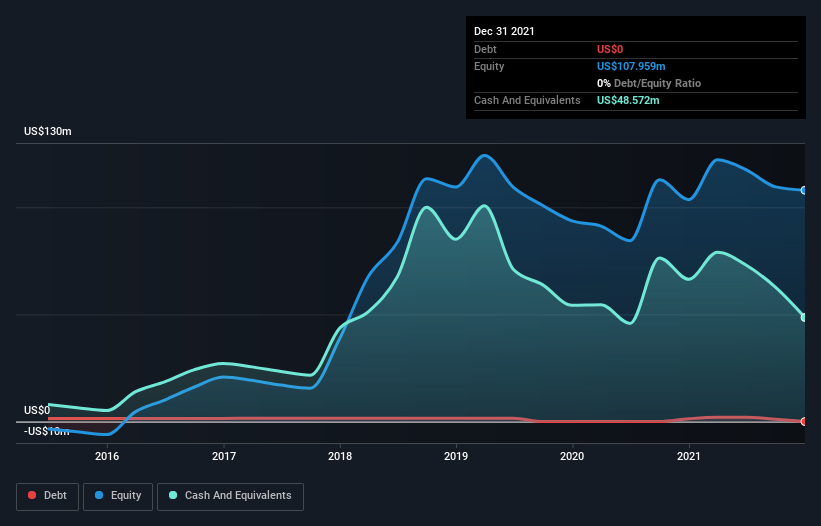Is CASI Pharmaceuticals (NASDAQ:CASI) In A Good Position To Invest In Growth?
We can readily understand why investors are attracted to unprofitable companies. For example, biotech and mining exploration companies often lose money for years before finding success with a new treatment or mineral discovery. But the harsh reality is that very many loss making companies burn through all their cash and go bankrupt.
Given this risk, we thought we'd take a look at whether CASI Pharmaceuticals (NASDAQ:CASI) shareholders should be worried about its cash burn. In this article, we define cash burn as its annual (negative) free cash flow, which is the amount of money a company spends each year to fund its growth. Let's start with an examination of the business' cash, relative to its cash burn.
See our latest analysis for CASI Pharmaceuticals
How Long Is CASI Pharmaceuticals' Cash Runway?
A company's cash runway is calculated by dividing its cash hoard by its cash burn. As at December 2021, CASI Pharmaceuticals had cash of US$49m and no debt. Importantly, its cash burn was US$42m over the trailing twelve months. Therefore, from December 2021 it had roughly 14 months of cash runway. Importantly, analysts think that CASI Pharmaceuticals will reach cashflow breakeven in 4 years. That means unless the company reduces its cash burn quickly, it may well look to raise more cash. You can see how its cash balance has changed over time in the image below.
How Well Is CASI Pharmaceuticals Growing?
In the last twelve months, CASI Pharmaceuticals kept its cash burn steady. But its operating revenue was anything but flat over the year, gaining a full 99%. We think it is growing rather well, upon reflection. Clearly, however, the crucial factor is whether the company will grow its business going forward. For that reason, it makes a lot of sense to take a look at our analyst forecasts for the company.
Can CASI Pharmaceuticals Raise More Cash Easily?
Even though it seems like CASI Pharmaceuticals is developing its business nicely, we still like to consider how easily it could raise more money to accelerate growth. Issuing new shares, or taking on debt, are the most common ways for a listed company to raise more money for its business. Commonly, a business will sell new shares in itself to raise cash and drive growth. We can compare a company's cash burn to its market capitalisation to get a sense for how many new shares a company would have to issue to fund one year's operations.
CASI Pharmaceuticals' cash burn of US$42m is about 72% of its US$59m market capitalisation. Given how large that cash burn is, relative to the market value of the entire company, we'd consider it to be a high risk stock, with the real possibility of extreme dilution.
How Risky Is CASI Pharmaceuticals' Cash Burn Situation?
On this analysis of CASI Pharmaceuticals' cash burn, we think its revenue growth was reassuring, while its cash burn relative to its market cap has us a bit worried. One real positive is that analysts are forecasting that the company will reach breakeven. Looking at the factors mentioned in this short report, we do think that its cash burn is a bit risky, and it does make us slightly nervous about the stock. Readers need to have a sound understanding of business risks before investing in a stock, and we've spotted 2 warning signs for CASI Pharmaceuticals that potential shareholders should take into account before putting money into a stock.
Of course CASI Pharmaceuticals may not be the best stock to buy. So you may wish to see this free collection of companies boasting high return on equity, or this list of stocks that insiders are buying.
Have feedback on this article? Concerned about the content? Get in touch with us directly. Alternatively, email editorial-team (at) simplywallst.com.
This article by Simply Wall St is general in nature. We provide commentary based on historical data and analyst forecasts only using an unbiased methodology and our articles are not intended to be financial advice. It does not constitute a recommendation to buy or sell any stock, and does not take account of your objectives, or your financial situation. We aim to bring you long-term focused analysis driven by fundamental data. Note that our analysis may not factor in the latest price-sensitive company announcements or qualitative material. Simply Wall St has no position in any stocks mentioned.

